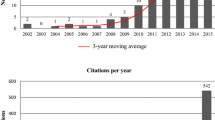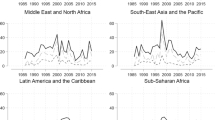Abstract
Economists are beginning to investigate the causes and consequences of financial illiteracy to better understand why retirement planning is lacking and why so many households arrive close to retirement with little or no wealth. Our review reveals that many households are unfamiliar with even the most basic economic concepts needed to make saving and investment decisions. Such financial illiteracy is widespread: the young and older people in the United States and other countries appear woefully under-informed about basic financial concepts, with serious implications for saving, retirement planning, mortgages, and other decisions. In response, governments and several nonprofit organizations have undertaken initiatives to enhance financial literacy. The experience of other countries, including a saving campaign in Japan as well as the Swedish pension privatization program, offers insights into possible roles for financial literacy and saving programs.
Similar content being viewed by others
Author information
Authors and Affiliations
Rights and permissions
About this article
Cite this article
Lusardi, A., Mitchelli, O. Financial Literacy and Retirement Preparedness: Evidence and Implications for Financial Education. Bus Econ 42, 35–44 (2007). https://doi.org/10.2145/20070104
Published:
Issue Date:
DOI: https://doi.org/10.2145/20070104




